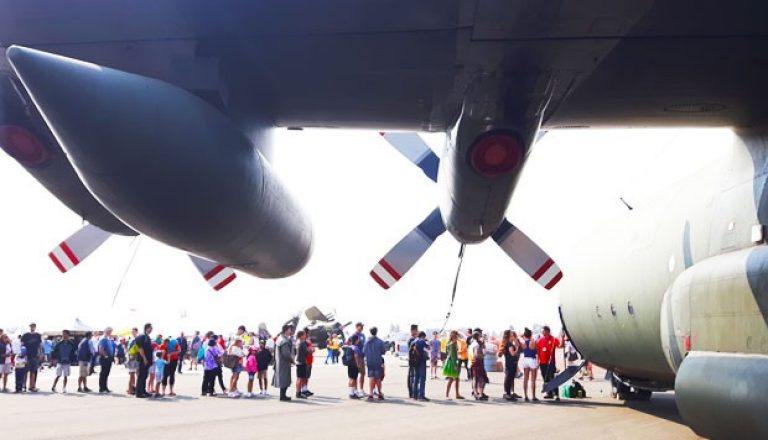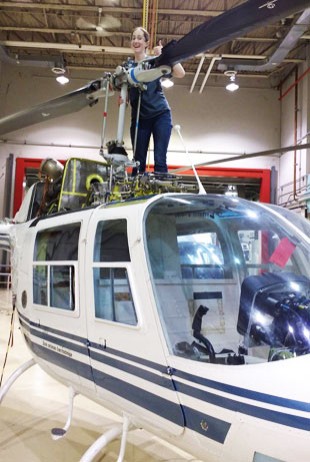These experiences were instrumental in helping me choose a research topic and develop an ever-increasing appreciation of the complexity of the aviation industry.
What is the hoped-for result of your project?
My research problem involves three main variables: the aircraft modification industry, product lifecycle management (PLM) and PLM-specific language.
Standardization of technical jargon, commonly referred to as ontology in the software sector, is a well-documented issue. It is, however, not often discussed in terms of person-to-person interaction in a small-to-medium enterprise setting, where a single large PLM software and process solution, aimed toward unifying this language, may not be present.
I argue that different PLM methods (such as Lean, PMBOK, etc.) use different language to describe the product lifecycle, which contributes to communication barriers. This is particularly cumbersome for complex product development, such as aircraft modification, which is the case study context of this work.
I am proposing a technique called “process mapping” as a useful tool to help overcome this communication barrier.
What impact could you see it having on people's lives?
While many fields struggle to agree on common language, the aerospace sector is notorious for acronyms and semantic interpretation of words. For example, how many ways can you interpret the word “product”?
In my research on PLM, I think identifying the problem and proposing a solution may help in both day-to-day communication and company-wide process development.
What are some of the major challenges you face in your research? What are some of the key areas where your work could be applied?
I think the aerospace industry would take several lifetimes to learn completely. Just learning enough to identify this issue took a lot of work.
The intent of this work is to generate constructive discussion around how to use PLM methods as constructive, unifying tools in companies that won’t see a meaningful return from investing in big PLM software solutions.
The aircraft modification industry is the case study I’m using for my thesis, but I think the conversation can extend far beyond this sector. Aircraft modification is a fascinating and highly complex topic, and I hope this research is well-rooted enough in the industry to be of value.
What person, experience or moment in time first inspired you to study this subject and get involved in the field?
I am in this field because it’s brand new to me and extremely challenging. While in my last year of my BSc in Biology, I decided I no longer wanted to pursue veterinary sciences. Instead, I decided to do a second undergraduate degree in mechanical engineering to learn more about how stuff works.
I got involved with the Concrete Toboggan Team during my first year of engineering, which led to three years in the Concordia chapter of the Society of Automotive Engineers.
It was through SAE that I met my MA.Sc. supervisor, Dr. Catharine Marsden, associate professor in the Faculty of Engineering and Computer Science and senior chairholder of the NSERC Chair in Aerospace Design Engineering.
Aerospace sounded like a great idea because I knew virtually nothing about it.
How can interested STEM students get involved in this line of research? What advice would you give them?
Montreal is the third largest aerospace hub in the world. Getting into the industry from engineering studies is likely most accessible through work terms during the engineering degree.
Taking an internship, through Co-op, Industrial Experience (INEX), or CIADI, is key to getting a foot in the door, and co-curricular involvement is a huge advantage in what can be a competitive internship market.
For industry-geared graduate studies, choose a supervisor with whom you get along well, who is very involved with their students, who has spent time working in industry, and who understands the value of an experiential learning platform.
What do you like best about being at Concordia?
Concordia has the most incredible sense of community, comradery, and team spirit, making it a phenomenal place to acquire the skills needed for a successful career. There is an extremely wide range of faculty expertise, and there are state-of-the-art technical facilities.
As a result, students are well rounded and well prepared for both industry and research. I am grateful to be able to study at this institution, and hope to stay for a long time.
Are there any partners, agencies or other funding/support attached to your research?
I would like to thank the following for their indispensable and continued support:
- Catharine Marsden, Senior Chairholder, NSERC Chair in Aerospace Design Engineering (NCADE);
- The NSERC Chairs in Design Engineering (CDE) program
- NSERC Engage
- NCADE industry partners: Altair Engineering, Bell Helicopter Textron Canada Limited, Bombardier Aerospace, Marinvent Corporation, Pratt & Whitney Canada, Siemens Canada
- Concordia’s Faculty of Engineering and Computer Science
- Cascade Aerospace Inc.
- Dominic Ng, Michael Rembacz, and William Chicoine at Concordia’s Engineering Design and Manufacturing Labs (EDML)
- The Concrete Toboggan and Concordia SAE teams
Learn more about Concordia’s Institute for Information Systems Engineering, Department of Mechanical, Industrial & Aerospace Engineering.




